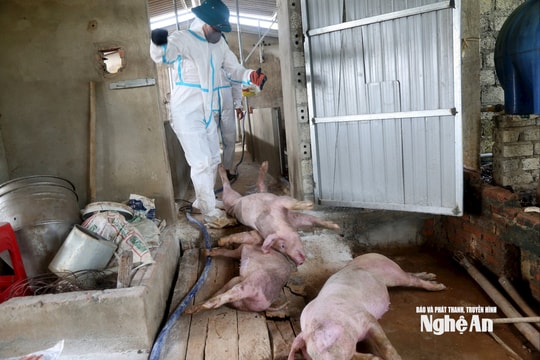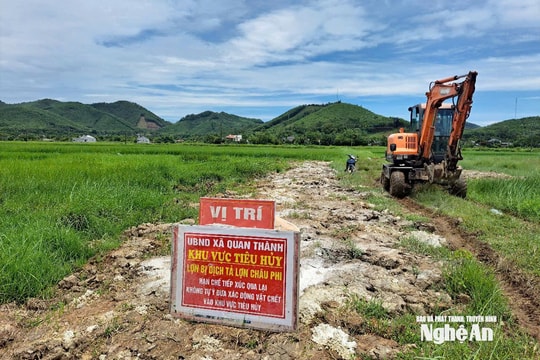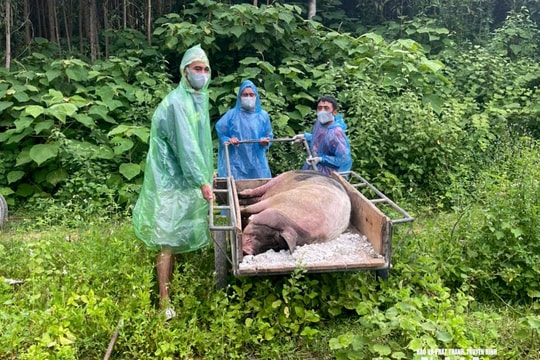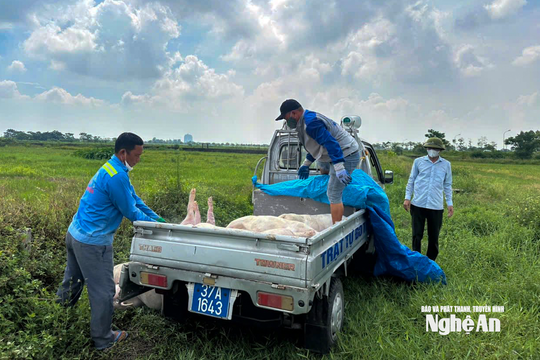Nghe An: Livestock farmers wait wearily for support money to destroy livestock due to disease
(Baonghean.vn) - It has been the third year since livestock herds were destroyed due to disease, but livestock farmers have yet to receive support money. Not only does this cause difficulties in herd restoration, but this problem can also affect livestock disease prevention.
"Pawning" land title to borrow capital to restore herd
As a near-poor household in difficult circumstances, with the hope of improving his family's economic conditions, Mr. Tran Khanh An, Hamlet 7, Dien Lien Commune (Dien Chau) borrowed 50 million VND from the Social Policy Bank under the policy of supporting poor households, to build a barn and buy a cow to raise. However, in March 2021, due to the lumpy skin disease epidemic, the pregnant cow was forced to be destroyed. A year later, impatient with the empty barn, he "bite the bullet" and mortgaged the land he was living on, borrowing an additional 40 million VND from the bank to buy a cow to raise.
"The 30 million VND we used to buy cows last time, after the cows were destroyed, was repaid by the bank, but every month my family still has to pay back the bank loan to rebuild the herd, which is very difficult," Mr. An shared.
In 2021 and 2022 alone, due to African swine fever, Dien Lien commune had to destroy 229 pigs, with a total weight of 7,662 kg.
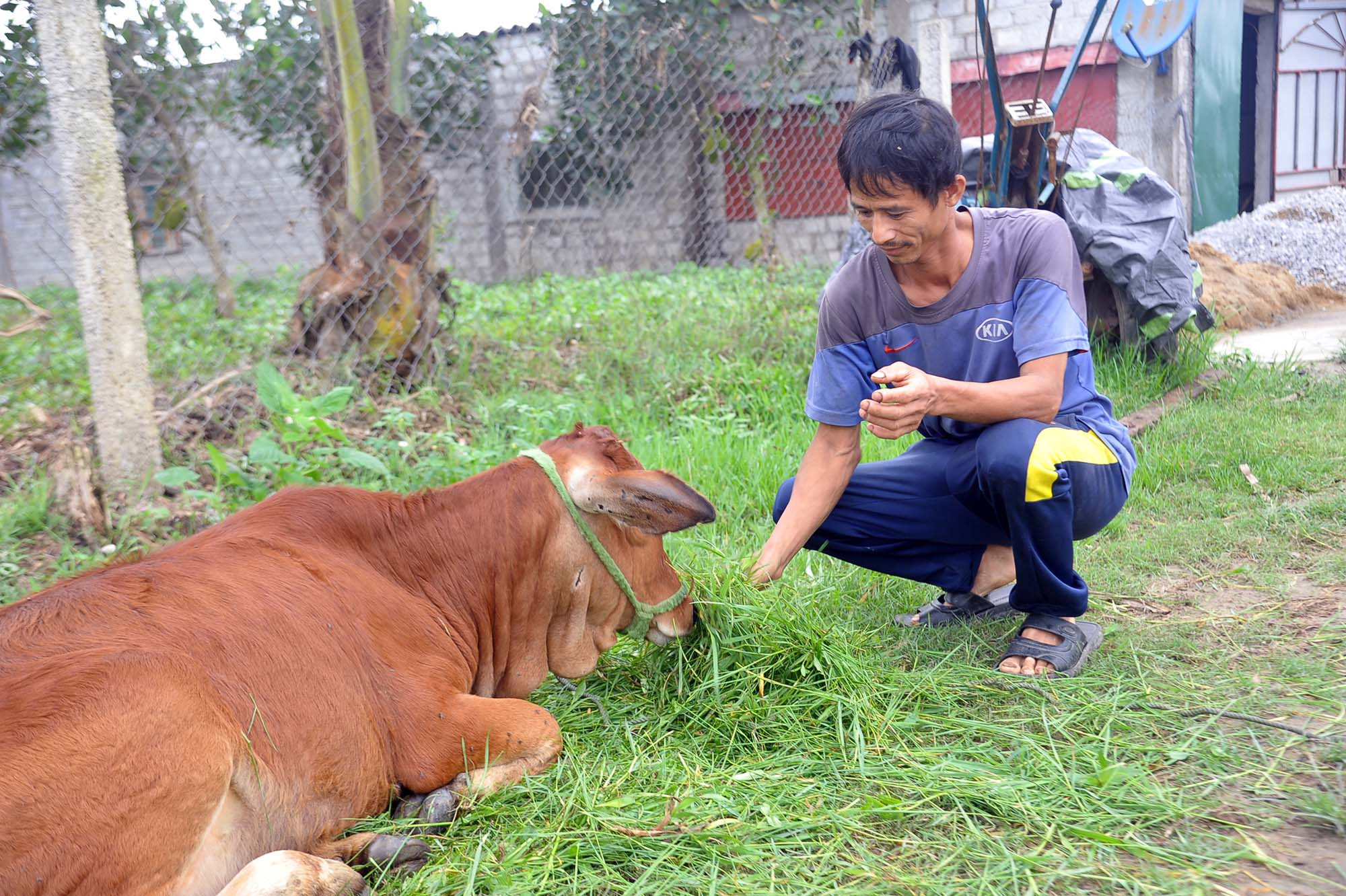 |
Mr. Tran Khanh An, hamlet 7, Dien Lien commune, Dien Chau, mortgaged his land title to borrow money from the bank to buy cows to restore his herd. Photo: Phu Huong |
In September 2021, Mr. Dinh Van Dong's family in Dien Thai commune had to destroy a herd of 16 pigs with a total weight of nearly 1.1 tons due to African swine fever. He had invested in a spacious barn system since the beginning of 2019, but after only 8 litters of pigs, he had to leave the barn empty, although immediately after the pigs were destroyed, his family disinfected and was able to re-herd.
“When the disease was discovered, the pigs had already been sold, most of them had not shown any symptoms, but I did not sell them and strictly followed the policy of destroying them to prevent and control the disease. However, for several years now, I have not seen any support money, and the breed is expensive, so I have to leave the pigs in the barn empty,” Mr. Dong said dejectedly.
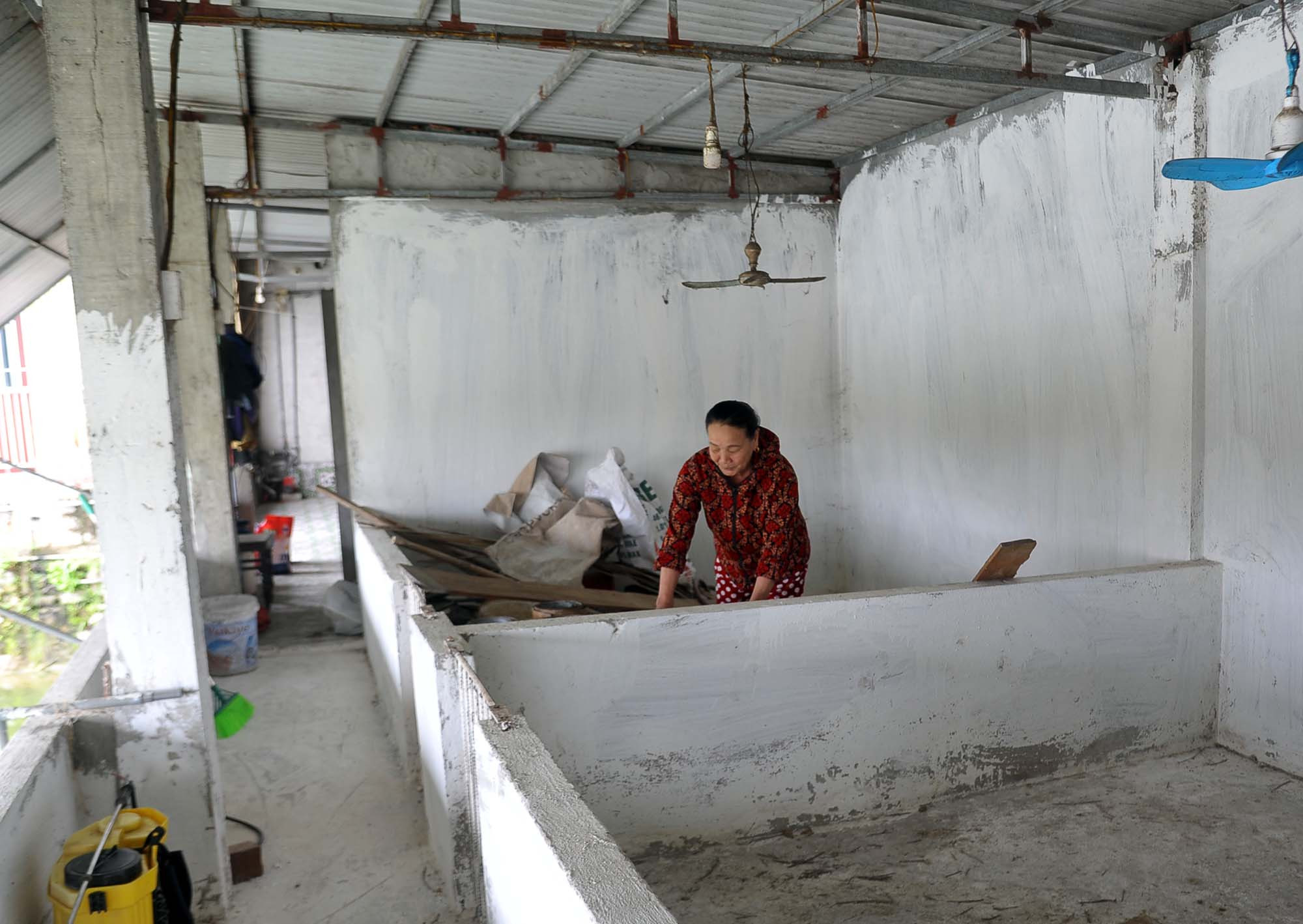 |
Up to now, the barn of Mr. Dinh Van Dong's family in Dien Thai commune, Dien Chau is still empty. Photo: Phu Huong |
In 2021, there were 2 outbreaks of African swine fever in Dien Thai commune, with a total of 3,500 kg of pigs destroyed; in 2022, the epidemic continued to occur in 1 household with 2 sows destroyed.
Ms. Nguyen Thi Chau, an agricultural official of the commune, said: In recent years, the livestock herd in the area has decreased sharply. The total pig herd of the commune used to be over 2,000, but now there are only about 600, mainly in large farms.
Similarly, in 2021, African swine fever wiped out the pigsty of Mr. Lai Nhu Hoa's family in Ngoc Thanh hamlet, Hung Thanh commune, Yen Thanh.
“Farming is just enough to eat, and raising livestock is a side job but it brings in the main source of income, almost all the work in the family depends on it,” Mr. Hoa shared.
Therefore, after the pig herd was destroyed, his family had to borrow money to rebuild the herd. However, due to lack of capital, the family could only buy 2 mother pigs, and it was not until this year that he bought 3 more breeding pigs to raise for meat.
Impact of herd restoration and disease prevention and control
From 2021 to present, in Yen Thanh district, there have been a number of outbreaks of lumpy skin disease in cattle and African swine fever in pigs; the number of livestock destroyed has been counted, but after more than 2.5 years, there has been no support money.
Mr. Nguyen Van Duong, Vice Chairman of the District People's Committee, said: When an epidemic occurs, the support plan has been approved, the district often allocates the reserve budget to "advance" in advance to support people to restore production.
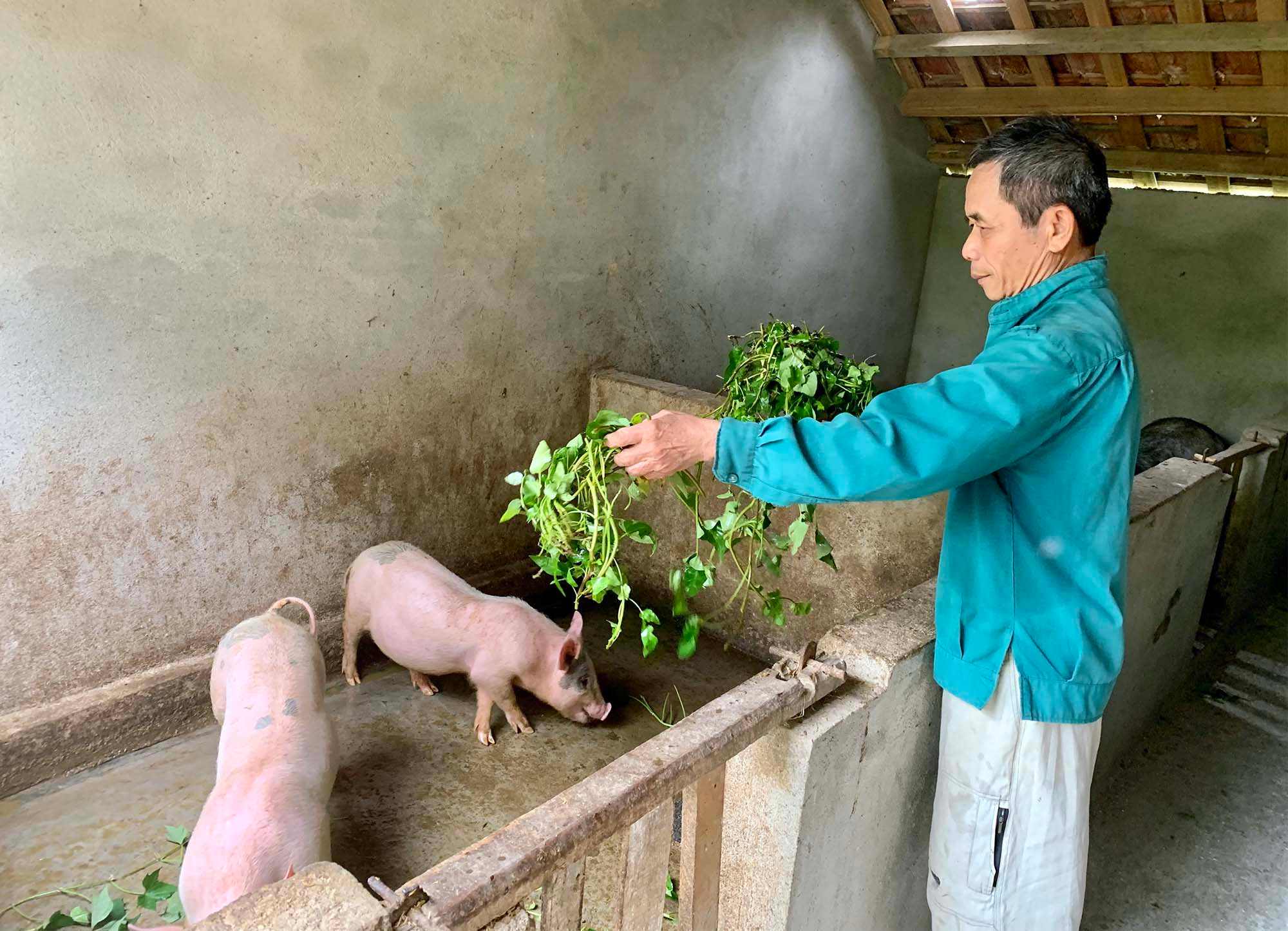 |
After his pig herd was destroyed due to an epidemic, Mr. Lai Nhu Hoa, Ngoc Thanh hamlet, Hung Thanh commune, Yen Thanh district, had to borrow money to rebuild the herd. Photo: Phu Huong |
“However, the reserve fund is often not enough to meet the demand and must be prioritized for unexpected events such as natural disasters, droughts, and floods. In recent years, Yen Thanh has allocated budget to support people in advance, but in years when epidemics occur frequently, it is helpless,” said Mr. Nguyen Van Duong.
In 2021 and 2022, Nghe An had 31,000 pigs and 2,400 cattle destroyed due to lumpy skin disease and African swine fever. The damage was great, but from 2021 until now, the policy of supporting households whose livestock had to be destroyed has not been implemented.
According to Mr. Ngo Duc Quynh - Deputy Head of the Provincial Department of Animal Husbandry and Veterinary Medicine, in addition to difficulties in investing in herd restoration, especially for farms with large numbers of livestock, slow implementation of policies also affects people's thinking in disease prevention and control. Farmers will easily hide the epidemic, sell well to have money to invest in herd restoration, causing the disease to spread widely, making it difficult to prevent and control the epidemic as well as causing food safety problems for consumers. Untimely support sources also lead to limited meaning and effectiveness of policies to support production recovery after the epidemic.

.jpg)
.jpg)
